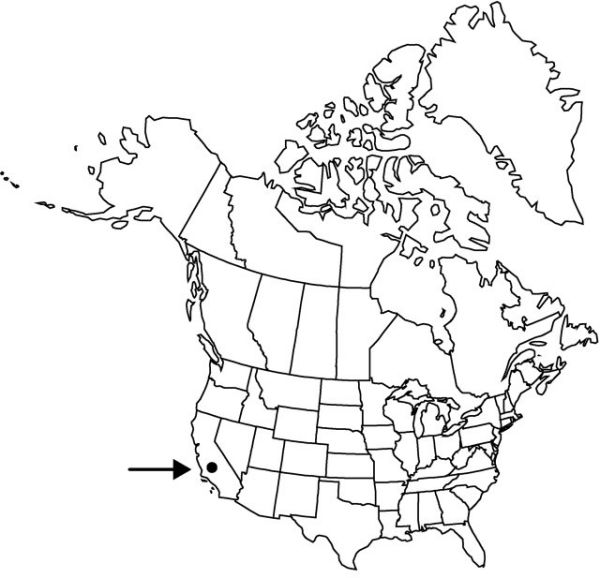Difference between revisions of "Fritillaria striata"
Proc. Calif. Acad. Sci., ser. 4, 20: 136. 1931.
Common names: Striped adobe-lily Striped adobe-lily
EndemicConservation concern
FNA>Volume Importer |
imported>Volume Importer |
||
| (3 intermediate revisions by 2 users not shown) | |||
| Line 8: | Line 8: | ||
}} | }} | ||
|common_names=Striped adobe-lily Striped adobe-lily | |common_names=Striped adobe-lily Striped adobe-lily | ||
| + | |special_status={{Treatment/ID/Special_status | ||
| + | |code=E | ||
| + | |label=Endemic | ||
| + | }}{{Treatment/ID/Special_status | ||
| + | |code=C | ||
| + | |label=Conservation concern | ||
| + | }} | ||
|basionyms= | |basionyms= | ||
|synonyms= | |synonyms= | ||
| Line 34: | Line 41: | ||
-->{{#Taxon: | -->{{#Taxon: | ||
name=Fritillaria striata | name=Fritillaria striata | ||
| − | |||
|authority=Eastwood | |authority=Eastwood | ||
|rank=species | |rank=species | ||
| Line 48: | Line 54: | ||
|publication title=Proc. Calif. Acad. Sci., ser. | |publication title=Proc. Calif. Acad. Sci., ser. | ||
|publication year=1931 | |publication year=1931 | ||
| − | |special status= | + | |special status=Endemic;Conservation concern |
| − | |source xml=https:// | + | |source xml=https://bitbucket.org/aafc-mbb/fna-data-curation/src/2e0870ddd59836b60bcf96646a41e87ea5a5943a/coarse_grained_fna_xml/V26/V26_299.xml |
|genus=Fritillaria | |genus=Fritillaria | ||
|species=Fritillaria striata | |species=Fritillaria striata | ||
Latest revision as of 21:14, 5 November 2020
Bulb scales: large 2–7; small 0–1. Stem 2.5–3.8 dm. Leaves 3–10, alternate, 6–7 cm; blade oblong-ovate, ± glaucous. Flowers nodding, fragrant; tepals white to pink, often striped red, oblanceolate, 2–3.5 cm, apex acute to apiculate, usually recurved; nectaries at base of tepals, green, outlined with lavender, linear; style barely branched, branches shorter than 1.5 mm. Capsules angled. 2n = 24.
Phenology: Flowering Mar–May.
Habitat: Adobe soil
Elevation: 0–1000 m
Discussion
Of conservation concern.
Fritillaria striata is considered rare and endangered in California, the greatest threat at present being loss of habitat due to cattle grazing.
Selected References
None.
Lower Taxa
None.
